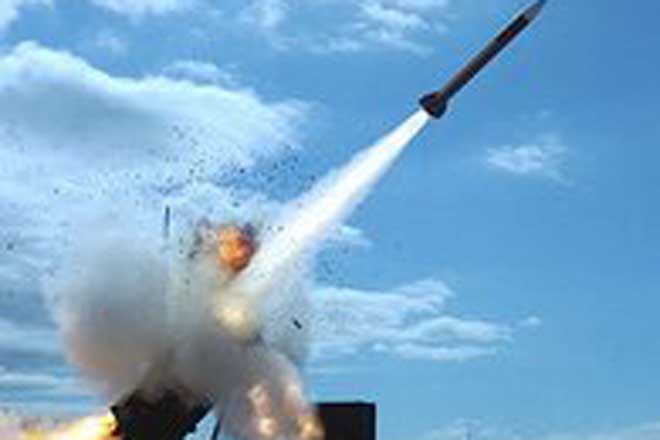Azerbaijan, Baku, Sept. 18 / Trend , E.Tariverdiyeva/
The Barack Obama administration's decision to cancel missile defense program in Europe will have a positive impact on relations between Russia and the United States, and perhaps help Iran to come to a consensus with the West, experts believe.
"The U.S.'s new approach will be welcomed by both the Europeans and the Russians and would help all the parties develop and maintain a common approach on the Iranian issue, and this, in turn, would minimize the ability of the Iranian Government to play one side against the other," Director on International Relations at University of Virginia (U.S.), Yannis Stivachtis wrote to Trend in an email.
According to the Czech media on Thursday, citing a diplomatic source, the U.S. President, Barack Obama on Sept. 17 informed the Prime Minister of the Czech Republic, Jan Fischer on canceling to deploy the U.S. missile defense system in the Czech, RIA Novosti reported.
The U.S. Vice President, Joe Biden, being on a visit in Iraq, refused Thursday to comment on the reports that Washington has decided to postpone plans to deploy missile defense in Eastern Europe, Interfax reported.
However, he told the CNN TV company that Iran, in his opinion, now is not a danger to the United States or their allies.
Plan of deploying missile defenses in Poland and Czech Republic was designed to defend against the Iranian missiles.
According to European experts, refusal from the MDS will primarily affect relations with Russia and Washington to help to enlist the support of Moscow in the negotiations with Iran and possible sanctions against Tehran.
Stivachtis believes if the Iranian Government would attempt to undermine any agreement reached with the Americans, the Europeans, and the Russians their effort would upset all the three sides and, therefore, Iran would face a diplomatic confrontation with all of them at the same time, no government would wish to be in that situation.
Now the main problem is not so much Iranian missiles as the Iranian nuclear program, because the United States would like to gain Russia's support in possible serious sanctions against Iran, said Russian military expert Pavel Felgenhauer.
"It deals with a possible ban on imports of gasoline to Iran, which will lead to a serious crisis in Iran. The EU seems to agree, even without a UN resolution, to impose unilateral sanctions on Iran to import gasoline, Iran imports 40 percent of gasoline, Felgenhauer told Trend by telephone from Moscow. - If this happens, then perhaps, the American fleet will blockade the coast to prevent gasoline import to Iran. "
U.S. and other Western countries accuse Iran of developing nuclear weapons under the guise of peaceful nuclear energy program. The UN Security Council adopted five resolutions, three of which imposing sanctions against Iran, requiring to stop uranium enrichment, and two resolutions contain the warning. Tehran denies the accusations, saying its nuclear program is aimed solely at covering country's electricity needs.
U.S. plans to begin negotiations with Iran in October, if an agreement is not reached, the only solution will be actions such as blockades, the expert said.
According to Felgenhauer, in this situation, the Iranian ballistic missiles, which do not exist yet, will lose their urgency compared with the nuclear program.
According to the expert, so in the U.S. there were many opponents of the plan on deployment of anti-missile system in Poland and the Czech Republic, and the Pentagon has always had opposition to plans on an accelerated deployment of anti-missile system in Europe.
"Now the U.S. can save money, and make certain reverence towards Russia, since Russia's support will not prevent solving the pressing problem of the Iranian nuclear program," said Felgenhauer.
Now it is a postponement of the deployment of anti-missile system, however, maybe this system will never be in the form in which the Bush administration wanted to see, the expert said.
Stivachtis believes the decision not to install the missile-defense system in Poland and the Czech Republic would assist the development of more cordial relations between the US and Russia. "In turn, extensive collaboration between the US and Russia would provide more opportunities for stabilizing the international system," said Stivachtis, American Expert on Security.
However, Expert on nuclear issues, Secretary General of the Organization for the Protection of National Interests of Iran, Said Yari, believes the U.S. does not completely give up missile defense system (MDS) in Europe, realization of this project is still in effect.
"Taking such a step of propaganda charter, President Barack Obama speaks of refusal of such system," Yari told Trend by telephone from Tehran. "Currently, an attack on any country, introducing troops (in Iraq and Afghanistan) or the placement of missile defense systems in Poland and the Czech Republic require huge financial costs, so Obama is forced to make such a maneuver," said Yari.
European Expert, Director of the Civic Institute of Prague, Roman Joch, believes the Barack H. Obama administration's decision to cancel missile defense program in Central Europe is, unfortunately, short-sighted and counterproductive.
"The U.S. badly underestimates the Iranian missile and nuclear program, hence could potentially have grave consequences for lives of hundreds of thousands human beings," Joch wrote to Trend in an email.
Refusal from the MDS in Europe is a hostile act towards American allies in (Central) Europe, the expert said.
This decision, unfortunately, has been an act of unilateralism par excellence, the expert believes.
"Obama hasn't consulted allies, he just made the decision unilaterally - which means another snub towards allies," Joch said.
V.Zhavoronkova and T.Jafarov contributed to this article.
Do you have any feedback? Contact our journalist at [email protected]






